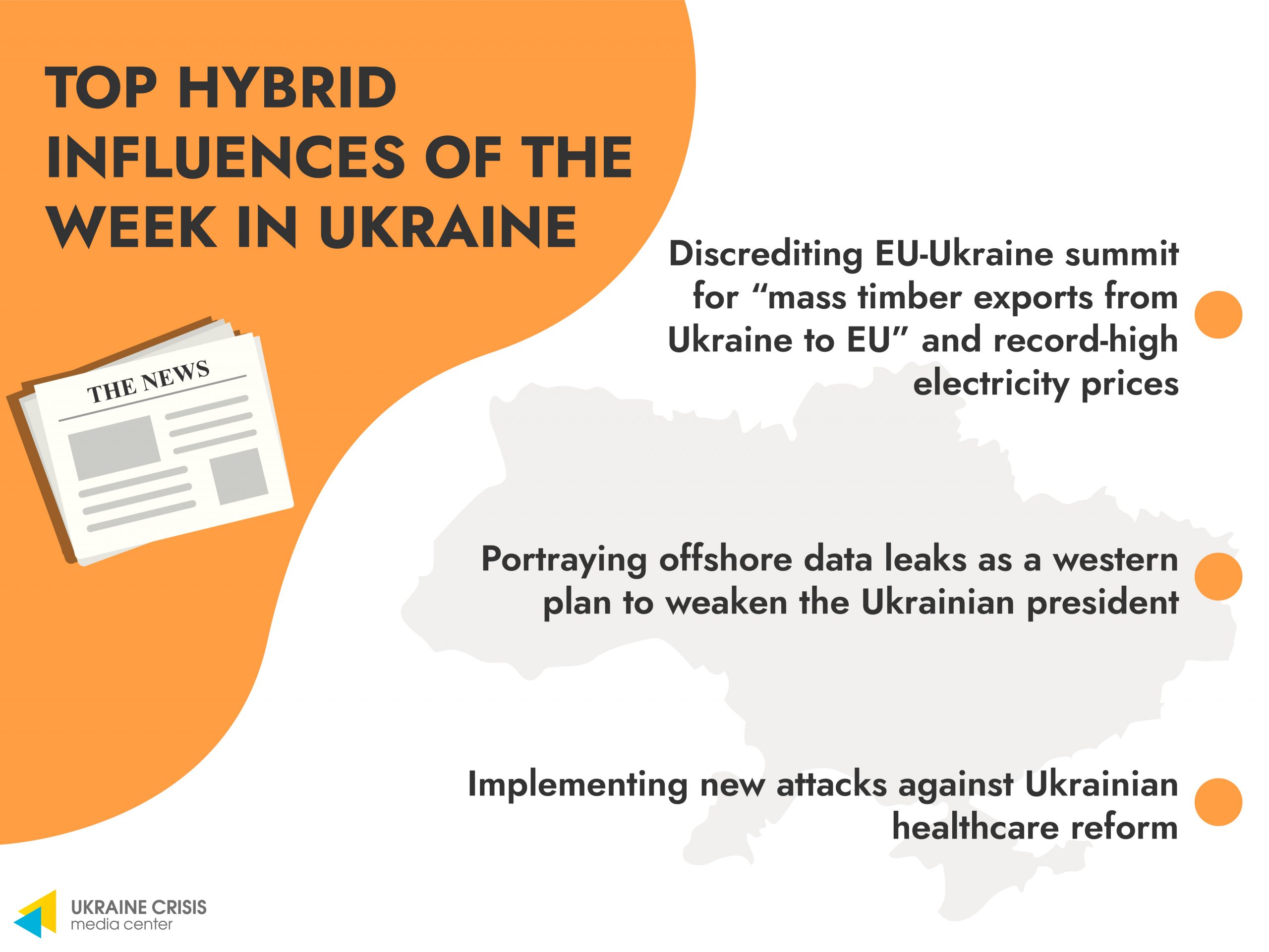The pro-Kremlin media tried to discredit the 23rd EU-Ukraine Summit that took place in Kyiv on October 12 by promoting unfounded claims about its results, in particular, about the “mass timber exports from Ukraine to the EU” and record-high electricity prices. They focused on speculating on the sensitive topics while completely ignoring the achievements of the summit, such as signing the Open Sky treaty, and two agreements on joining the Horizon Europe and Creative Europe programs.
The Kremlin’s proxies, especially anonymous Telegram channels that claim to have insider information, continue exploiting Pandora Papers in regards to Ukrainian President Zelensky’s part. They disseminate messages as if the West aids in the promotion of discrediting information to make the Ukrainian government weaker. The pro-Kremlin forces portray this as striving to control Ukraine more, once again reinforcing the “external governance” narrative.
The attacks on the Ukrainian healthcare reform have renewed – the pro-Kremlin forces blame the over-crowding of the hospitals on the reform, not the COVID-19 pandemic. They appeal to the emotions of the audience by claiming that the healthcare system is being commercialized with no care for people. Such attacks are aimed to discredit the healthcare reform institutions to destabilize Ukraine amidst the pandemic.



